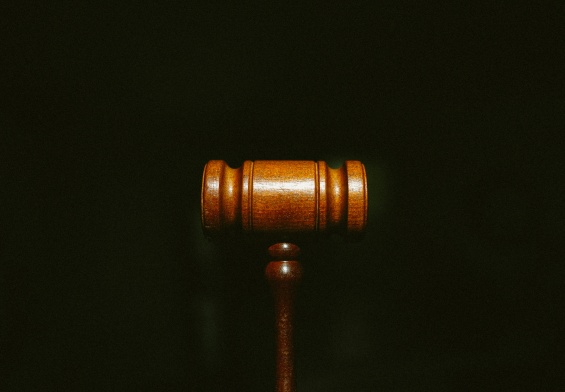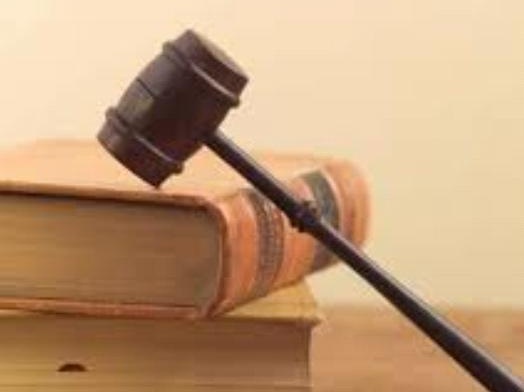To say that the novel coronavirus has thrown our lives into disarray and made us uneasy about our futures would be an understatement. In the past few months countless industries from hospitality and food service to airlines to retail have ground to a halt amid social distancing guidelines and explicit stay-at-homes orders handed down by state governors.
Regrettably, the resultant layoffs could be just the tip of the iceberg for our economy. What many people are starting to ask is what happens if they find themselves awash in unpaid bills due to a coronavirus layoff. Indeed, many others are wondering if bankruptcy is a viable solution if things keep going in this direction.
First Steps After a Layoff
Although being laid off is never pleasant, many employers have had little choice but to engage in mass layoffs as the coronavirus pandemic has shuttered businesses and kept all but the most essential sectors of the economy from running. With less money to cover the bills, there’s no doubt that unpaid debts will begin to accumulate.
Luckily, state, local and federal governments in addition to some creditors are doing their part to help out during this crisis. For instance, some programs have put a stop to foreclosures and evictions during the pandemic. Furthermore, government programs such as the recent stimulus payment and unemployment can also help people skate by as long as they try to minimize everyday expenses. Nonetheless, it’s hard to imagine that these measures will be enough for many people to keep their heads about water. For this reason, it’s important to have a plan in case the worst happens.
Prioritize Your Bills
If you’re trying to manage on a reduced income, it’s critical to devote your resources to the essential bills such as car payments, utilities, rent or mortgage payments, so that you cover the things you need to live. On the contrary, non-essential bills such as credit card payments can take a back seat for now. While creditors ringing your phone off the hook to collect payments is unpleasant, that’s about the worst thing they can do right now. They’re not going to force you out of your home.
Nevertheless, you need to keep in mind that protection from paying things like your mortgage will end as soon as the crisis subsides. In other words, if you happen to fall behind on your rent or mortgage, you’ll have to come up with a large payment to remain in your residence. For this reason, you must prioritize your payments. It is also another reason to set aside some funds after your essential bills are paid in order to prepare for life after the outbreak ends.
Reconciling Your Debt After Emerging from the Outbreak
If you still have some money left after the coronavirus crisis winds down, it should be possible to negotiate lower payment amounts with outstanding creditors, including your landlord. While it’s not a sure thing, there is precedent for it.
During the recession of 2008, money stopped flowing and many creditors were willing to accept whatever they could get. In a similar fashion, as soon as coronavirus restrictions are lifted, many people will likely be mired in debt. However, recent history suggests that you will be able to settle with creditors and stave off bankruptcy.
If All Else Fails – Bankruptcy
Unfortunately, you might have to resort to bankruptcy if you’re unable to dig your way out financially. The reality is that, the sooner you file, the sooner you’ll be able to start repairing your credit and getting back to normalcy.
One of the biggest advantages to filing for bankruptcy is the chance to wipe out debts such as credit card balances, medical bills, and rent. In other words, it can help with exactly the kinds of debts that may become insurmountable during the current pandemic.
Chapter 7 or Chapter 13?
For individuals, this is usually their biggest dilemma when faced with financial insolvency. While both Chapter 7 and Chapter 13 grant instant relief, filing for Chapter 13 requires the individual to continue to have a source of income to make payments. Instead of discharging your debts, Chapter 13 gives you more time to pay them via a payment plan.
On the other hand, filing for Chapter 7 is probably the better bet for people who were laid off due to coronavirus. It offers the kind of immediate relief that people will need most in these times. Moreover, it’s relatively fast; it take about four months to complete. It means that you won’t have to pay your creditors anything, and you can retain whatever property you require to live and work.
It should be noted, however, that you will have to give up any luxury items such as expensive jewelry or a vacation home in exchange for the debt discharge. Ultimately, it’s up to each state to determine which property you can keep.
Speak with an Attorney
If you aren’t sure whether you’ll qualify for bankruptcy, it’s always a bad idea to stop paying your bills. In the long run, it could make it that much more difficult to catch up on payments. For this reason, you need to consult with a knowledgeable attorney if you’re considering filing for bankruptcy. Many employment attorneys will offer a free consultation related to layoffs. In addition, many law offices will walk you through how to complete the bankruptcy process remotely during the quarantine.
While filing for bankruptcy may not exactly be something to look forward to during a pandemic, it can relieve your financial burden and get you back on track once the worst is over.




